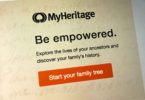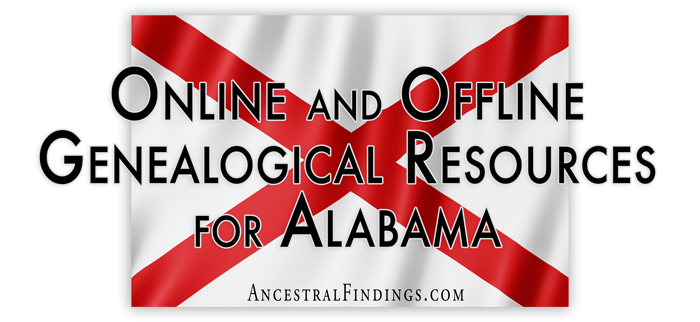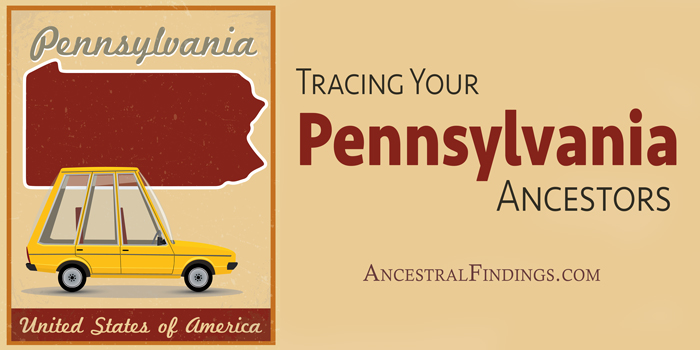One of the most valuable sources of genealogical information is old newspaper records. In the past, newspapers reported on all kinds of things that would not be considered news today. You can find lots of interesting local items in many old newspapers, such as who is visiting whom from out of town, who left town to visit someone else, any anniversaries, parties by local residents (including birthday parties), weddings, family reunions, local crime stories, and even disputes between friends and family members were often written about in old newspapers. Sometimes, there were even photos included, depending on how old the newspaper is. Basically, old newspaper records are a treasure trove of genealogical information.
In the past, it was a challenge to research old newspaper records. When they were even available to be used by the public, they were usually kept at the offices of the newspaper, or at local historical societies, and you had to go there in person to research them. The records, when they were available, were typically on microfilm or microfiche, usually kept listed by date, and there was no index. You had to just go through the records manually, actually scanning headlines and reading articles, possibly hundreds in a sitting, in order to maybe find a mention of your ancestor.
Even if you knew what date or date range to look in for potential information, you would still need to scan for mentions of your ancestor, because there was no index. It was a time-consuming, arduous process to research old newspaper records in the past, and there was no guarantee you would find anything useful for all the time and effort you put into it.
Thankfully, for modern genealogists, things are different today. You can access old newspaper records in the traditional way, yes, but you can also access them on the internet. Most of the time, the sites you access them on are indexed by name, and some of them are even indexed by word. This is done using sophisticated software that scans the images of the old newspapers for individual words, essentially reading them, so that you can put any word into the search fields and find articles containing them. This is a tremendous improvement in searchability and efficiency and is a wonderful tool for modern genealogists.
There are subscription websites that have old newspaper records on them, as well as free sites with them. The thing about most sites that include old newspaper records is that these sites usually have a limited range and number of old newspapers that they have indexed. To use the sites, you need to have known ancestors living in a certain place at a certain time. Many newspaper collections are not complete, either. You might find a newspaper collection on a site that doesn’t have the date range or location that you need, or it has it but it hasn’t uploaded or indexed it yet. Most old newspaper websites are in an almost continual process of uploading and indexing new pages. As you can imagine, the number of old newspaper pages in the world is vast.
There is no one old newspaper website that is perfect. There is, though, one old newspaper website that comes pretty close to it, and definitely stands out above the others. That website is Newspapers.com. It includes more than seven hundred million individual pages of old newspapers from around the world to explore, with more being added all the time. While it does not have every newspaper ever published (and there is currently no website that does), it has more than any other newspaper website online, and it has a larger date range and variety of locations of where the newspapers were originally published. If you are going to find important (and usually otherwise unknowable) information on your ancestors, this is not the only site to use to do it, but it is the best site to use to do it.
This site not only has a tremendous variety of old newspaper records, but it is also extremely easy and simple to search. You can search by a variety of things, including by name, but also by newspaper name, location, date range, and any kind of keyword you can imagine. This makes it much more likely that you will locate the person or information you are looking for on this site than on any other old newspaper website online.
It also makes it easy for you to find the information you are looking for once you go to the scanned image of the newspaper. On many old newspaper websites, the search field will take you to the scanned image of the newspaper page that has the information you requested on it, but you still have to scan or read the actual page to find it. With Newspapers.com, the actual text you entered into the search field when you did your search is highlighted on the scanned newspaper page, drawing your attention right to it. No scanning or reading an entire old newspaper page necessary to locate your ancestors (or other information for which you might be searching). It’s right there, glossed in yellow, so you notice it right away. This makes locating information on your ancestors on this site quick, easy, and fun.
Additionally, Newspapers.com is extremely reasonably priced. This is especially true when compared to some other genealogy research websites, and the genealogical value Newspapers.com provides. It comes with a free seven-day trial, so you can decide if it’s right for you. If you subscribe, you can do so monthly, semi-annually, or annually. You can subscribe to it directly, or subscribe using your Ancestry.com account and get a discount on the Newspapers.com subscription price. In fact, if you subscribe to the highest membership tier at Ancestry.com, it comes with a subscription to Newspapers.com built into it.
If you’re wondering if Newspapers.com is worth it for your genealogy research, it definitely is. You will most probably discover genealogical gems you never dreamed existed. This is a subscription website that should be in the arsenal of every genealogist.






